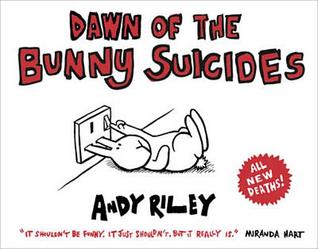Title: Crime and Punishment
Author: Fyodor Dostoyevsky
Translator: David McDuff
Pages: 671
Published: December 31st 2002 (first published 1866)
Published by: Penguin Classics
'Crime? What crime?...My killing a loathsome, harmful louse, a filthy old moneylender woman...and you call that a crime?'
Raskolnikov, a destitute and desperate former student, wanders through the slums of St Petersburg and commits a random murder without remorse or regret. He imagines himself to be a great man, a Napoleon: acting for a higher purpose beyond conventional moral law. But as he embarks on a dangerous game of cat and mouse with a suspicious police investigator, Raskolnikov is pursued by the growing voice of his conscience and finds the noose of his own guilt tightening around his neck. Only Sonya, a downtrodden prostitute, can offer the chance of redemption.
Rodion Romanovich Raskolnikov was studying Law in St. Petersburg, but we join him in the dark days after this. He is impoverished, unable to pay his rent, with a fiancee who has passed away. He doesn't really care about any of this, oftentimes finding it difficult to leave his coffin-like room. His mind in this time wanders, and he decides that if he could just get himself back on his feet he would be able to change hundreds of lives. Surely that makes one, little murder acceptable...? In the tale that follows, we see him commit the act and attempt to deal with the consequences.
This is my first foray into Russian literature, and I've got to say it wasn't anywhere near as bad as I was expecting. Not bad like 'bad', but bad like hard; I don't really know why, but I have it in my head that Russian literature tends to be quite dense. Maybe I've just picked an easy one to start off with! Because this is quite an easy read. You get caught up in the conversations going on, or in Raskolnikov's thoughts. And it's interesting as a reverse crime story. Rather than following the intrepid detective trying to track down the brutal killer, you follow the slightly unstable first-time killer as he tries to hide what he has done from those in authority.
Unfortunately, there isn't huge amounts of action in this book; most of it is conversation-based apart from the odd scene here and there - most notably the murder scene. In fact, I can't actually recall any other ones off the top of my head. People have conversations that last for hours, and thought processes that must take nearly as long. But through this you do get a real feel for the central characters.
And because of how much time you spend with Raskolnikov and in his head, I can honestly say I don't really like him. Now you're probably not meant to, because for all he has these odd bursts of altruism he is still a murderer. And a little bit crazy in some parts of the book. He spends a fair amount of the story in a delirium, using this as a pretty understandable excuse for his actions. He claims confusion or illness as the main cause for many of his actions, often not remembering (or claiming not to) things that have taken place, or why he did the things he did. Although, he does really want to help people, doing things which endanger himself or worsen his already dire financial situation without thought for himself. At least at the time.
Razumikhin is a fellow ex-student, and someone who almost stumbles into friendship with Raskolnikov. He is a deeply caring character, always wanting to help people and putting himself out of his way to ease the suffering of others. Sonya is a prostitute whom Raskolnikov forms a bond with, though the nature of this and how it came about I'm a little unclear about. It didn't really make much sense to be, and while you're told that Sonya is a deeply compassionate person, you're told this more than shown it in any particular way. I didn't think there was all that much too her as a character, especially compared to the depth with which Raskolnikov is shown to have.
Half-way through the book, I could see the story going one of two ways: either he would be found out as a result of some misstep caused by his loose hold on sanity, or he would succeed in getting away with his crime and be driven mad by the weight of the guilt. But I didn't know which was it was going to go, whether he would get away with it or not. There were lots of twists and turns within the crime part of the story which made it enjoyable because you never know from which direction something is going to come next. I was happy with the way that part of the story turned out, though I don't think the epilogue (indeed, the first epilogue I've seen with two chapters!) added much to the story. The first chapter of it was nice as a little round up, but I think I would have preferred it ending there, though I don't know what it is that I don't like about the second chapter. It provides a somewhat necessary final conclusion, though hints at a follow-up on some of the surviving characters which doesn't seem to exist.
An interesting book which I enjoyed a more than I was expecting to.





